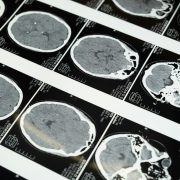It can be common to hear someone use terms like “anxious, OCD, or bipolar” to describe themselves or others. For example, perhaps we’ve heard or said things like, “I’m OCD about it” or “their mood is bipolar.” But what do these terms really mean? Here, we will take a closer look at OCD.
Please note that this blog is intended for educational purposes only and is not intended to replace medical or therapeutic evaluation, diagnosis, or intervention. If you think that you may be experiencing symptoms of OCD or another mental disorder, please contact a licensed professional who can provide appropriate services.
OCD, or Obsessive-Compulsive Disorder, is the presence of obsessions, compulsions, or both. Someone could have OCD characterized by only obsessions or only compulsions, but most people diagnosed with OCD have both. What are obsessions and compulsions?
The Diagnostic and Statistical Manual of Mental Disorders, 5th Edition (DSM-V) defines obsessions as “recurrent and persistent thoughts, urges, or images…. that are intrusive and unwanted….” It is common to experience anxiety about obsessions, and to try and get rid of the obsession in some way. This can lead to a compulsion.
The DSM-V defines compulsions as “repetitive behaviors or mental acts…. in response to an obsession or according to (rigid) rules….” A person diagnosed with OCD often hopes that by performing the compulsion, they will be able to get rid of the anxiety or prevent something bad from happening. While engaging in the compulsion may temporarily get rid of the obsessive thought or ease anxiety, it can make symptoms of OCD worse over time.
There are some common themes to obsessions and compulsions, such as:
-
Germs and contamination
-
Counting and orderliness
-
“Forbidden” thoughts
-
Fears of harming self or others
There is a difference between having OCD tendencies and diagnosable OCD.
OCD is different from double checking that the stove is off. Even though the urge to double check the stove may feel unwanted in that moment, it doesn’t necessarily mean that it reaches the threshold for a diagnosis. OCD differs because it interferes with someone’s daily functioning and/or takes up a lot of time. For example, someone diagnosed with OCD may spend many hours engaging in a certain behavior (e.g., mowing the lawn until the lines in the grass are exactly the same), or go out of their way to avoid any situation that could trigger an obsessive thought or compulsion (e.g., avoiding all social gatherings to prevent coming in contact with germs). Over time, this could be very limiting to someone’s life and interfere with living as their most authentic self.
If we are spending hours per day trying to get rid of thoughts, ease anxiety through compulsive behavior, or avoid any situation that may trigger a certain type of thought, there is likely far less time left in the day to do things that are important to us, like spending time with friends or family, enjoying hobbies, or pursuing goals.
If it is common to double check the stove or have other types of unwanted thoughts occasionally, what makes similar types of thoughts highly distressing to someone diagnosed with OCD? Dr. Rachman has suggested that perhaps someone’s appraisal or evaluation of the obsessive thought makes a difference. Someone diagnosed with OCD may have a catastrophic misinterpretation of the thought, feel responsible to control the thought, or perceive thoughts as more important than they are.
OCD is not a one-size-fits all. Themes may differ, but so can other factors such as how long someone may be impacted by symptoms of OCD. Importantly, there are evidence-based therapies that are supported by scientific research to help people diagnosed with OCD. For example, , , and other treatments that include exposure and response prevention have been found to be effective at improving symptoms of OCD.
There are treatments supported by scientific research that can help improve OCD.
Get Help
There is a difference between OCD tendencies and diagnosable OCD. If you feel like you may be impacted by symptoms of OCD, you are not alone. You may consider reaching out to Grow True Psychology for a free 15-minute informational consultation or another licensed professional in your area to inquire about getting help. Together, we can see if Grow True is right for your needs. I want to support my clients on their journey toward greater inner peace.
Disclaimer: Please note that visiting this website does not constitute a doctor-client therapeutic relationship. The information and resources included or linked on this website are for informational purposes only and are not intended to assess, diagnose, or treat any medical and/or mental health disease or condition. The information obtained from this site should not be considered a substitute for a thorough medical and/or mental health evaluation by an appropriately credentialed and licensed professional. We do not know the specifics of your situation or have the facts to provide this type of evaluation and recommend that you seek an appropriately credentialed and licensed professional to establish a doctor-client therapeutic relationship. This website also includes links to other websites for informational and reference purposes only. This website does not endorse, warrant or guarantee the products, services or information described or offered at these other websites.
References:
American Psychiatric Association (2013). Diagnostic and Statistical Manual of Mental Disorders (5th Ed.). Arlington, VA.
Rachman, S. (2003). The Treatment of Obsessions. Oxford University Press, New York, N.Y.



